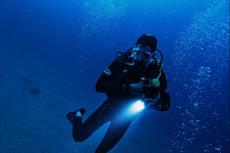Blue Whale Hybrids
Blue whales and fin whales can reproduce to create hybrids of the two species. Hidden DNA discovered in blue whales indicates they have been mating with other species, yielding hybrid offspring, as per a recent study published in Conservation Genetics.
Researchers analyzed the genomes of North Atlantic blue whales (Balaenoptera musculus musculus) and found surprisingly high levels of fin whale (Balaenoptera physalus) DNA, suggesting extensive interbreeding.
Blue whales, the largest animals on Earth, faced severe population decline due to historic whaling, leading to their current endangered status. The North Atlantic subspecies is particularly at risk. The study aimed to assess inbreeding within this population, crucial for their recovery.
Analysing samples
Using advanced genetic techniques, researchers created a comprehensive genetic blueprint and analysed samples from 31 whales. They discovered that each whale carried some fin whale DNA, with an average of 3.5% of their genome originating from fin whales.
Hybrid reproduction
It was previously thought that hybrid whales, resulting from blue and fin whale mating, were infertile. However, recent evidence indicates otherwise, with hybrids successfully reproducing with blue whales, leading to “backcrossed” offspring.
The extent of interbreeding uncovered in the study exceeded expectations, raising concerns about potential impacts on blue whale genetics. While it is unclear why introgression, or DNA transfer between species through interbreeding, appears unidirectional, it may relate to the larger population size of fin whales, according to study co-author Mark Engstrom, an ecological geneticist at the University of Toronto.
Limited evidence suggests this phenomenon is specific to the North Atlantic. Despite no immediate negative effects observed from carrying fin whale DNA, Engstrom is concerned that continued introgression could affect the genetic resilience of blue whales, potentially hindering their adaptation to environmental challenges like climate change.
Hope for recovery
Surprisingly, the study also revealed less inbreeding among North Atlantic blue whales than anticipated. Gene flow between western and eastern Atlantic populations, likely facilitated by ocean currents, contributes to genetic diversity and resilience, offering hope for the recovery of these magnificent creatures with sustained conservation efforts.



























